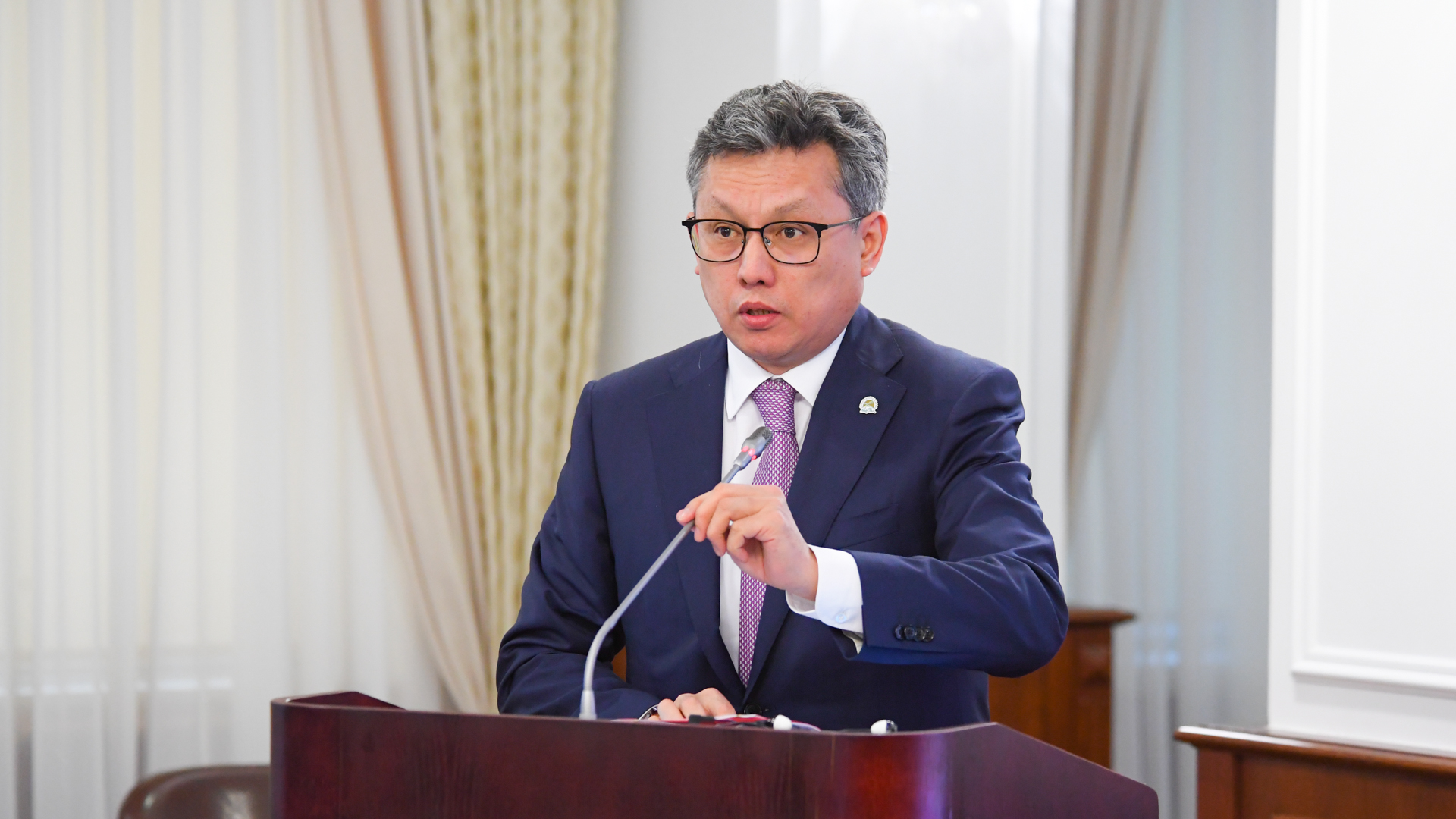10 December 2020, 14:14

At the government session chaired by the Prime Minister Askar Mamin, the issue of the country's socio-economic development for January-November 2020 was discussed. As the Minister of Trade and Integration Bakhyt Sultanov noted, since the beginning of the year, the rise in prices for socially significant food products amounted to 9.6%, which is 0.6 percentage points lower than last year.
At the same time, according to him, the main feverish growth of 4.1 percentage points was recorded during the state of emergency. So, from March 17 to 24, prices rose by a record 1.7 percentage points.
To stabilize price increases, limit prices were set for 9 goods, a ban on the export of 7 goods and a monthly quotas for the export of 6 goods were introduced. The value added tax rate was also lowered from 12% to 8%.
As a result of the measures taken, it was possible to stop the rise in prices.
However, as the head of the department said, in the 4th quarter of this year, prices increased again: in October — by 2.8% and in November — by 2.3%.
The largest increase in prices since the beginning of the year was recorded in Nur-Sultan — 15.6%, in Pavlodar — 15.4% and Atyrau — 12.9%.
For eight goods out of nineteen included in the list of socially significant goods, there is a significant increase in prices from 10% to 30%.
The largest price increase was recorded for import-dependent goods - sugar and buckwheat.
“The reason for this was the rise in the exchange rate over the year and the rise in world prices. For example, sugar and buckwheat imported mainly from Russia have risen in price by 33.6% and 34.6%, respectively,” explained the minister.
At the same time, some export-oriented goods also rose in price. Sunflower oil rose in price due to an increase in world prices by 53.8%, potatoes rose in price due to an increase in exports by 46.1%. Eggs rose in price due to the loss of chickens and a decrease in production by 6.3%.
The rise in prices for these five commodities played a key role in the overall food inflation. Without them, the overall rise in prices would have been about 2%, instead of the current 9.6%.
Work of akimats on containing prices
The methodology of setting threshold prices and, on their basis, the application of maximum prices is legally established.
As of today, 66 cases of exceeding the threshold values of retail prices in the country have been recorded.
Although price caps can be set in this case, the akimats did not use this tool, with the exception of Kyzylorda region and Almaty city.
Bakhyt Sultanov recalled that last year the deputy akims of seven regions were reprimanded for not taking measures to stabilize prices. However, no lessons have been learned from this. For example, in the Aktobe region last year there were 5 cases of excess, this year the indicator has not changed.
In Pavlodar and Turkistan regions, despite the largest number of excess, the akimats ignore the introduction of price caps.
Another instrument to stabilize prices — interventions by regional stabilization funds — is used by akimats extremely ineffectively.
For example, in the stabilization funds of the cities of Nur-Sultan and Almaty, as well as in Atyrau and Akmola regions, reserves have not been replenished since the beginning of the year.
“In the North Kazakhstan and Kostanay regions, the structure of reserves in stabilization funds is suboptimal. Instead of sugar, a significant amount of flour was purchased, the prices for which are quite stable,’’ added Sultanov.
The most effective way to stabilize prices is the reverse scheme. This was clearly demonstrated by the Akimat of Almaty. According to this mechanism, seven billion tenge was allocated and as a result, the rise in prices turned out to be one of the minimum in the country.
However, a number of akimats also ineffectively use the reverse scheme. For two years, akimats have allocated only 16.5 billion tenge, of which 40% belongs to Almaty.
Low funding allocated in four areas. In the East Kazakhstan region, no funds were allocated for the reverse scheme.
In some regions, within the framework of the mechanism, some goods are purchased, and subsequently prices for other goods rise.
For example, in the North Kazakhstan region 50 million tenge was allocated for the purchase of rice. However, prices rose the most for eggs, buckwheat and sugar.
The Agency for the Protection and Development of Competition has sent 297 notifications since the beginning of the year. At the same time, 13 price fixing investigations have been assigned to 5 manufacturers and 18 wholesale suppliers of food products.
At the moment, five investigations have been completed and fines have been imposed for 4.3 million tenge.
Given the risks of a second wave of the coronavirus pandemic and the traditional pre-New Year's rise in prices, the minister of trade and integration proposed the following measures to contain prices:
First. Akimats must reconsider the amount of food in the stabilization funds and to expand funding under the reverse scheme.
Second. The Ministry of Agriculture should monitor wheat reserves on the basis of the Food Contract Corporation to stabilize prices for socially significant food products.
Third. Akimats must ensure the implementation of the assigned functions of control of unreasonable price increases, in terms of setting maximum permissible retail prices for individual products, for which the greatest excess of threshold values is observed and to ensure compliance control.
Stay updated about the events of the Prime Minister and the Government of Kazakhstan - subscribe to the official Telegram channel
Subscribe